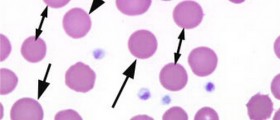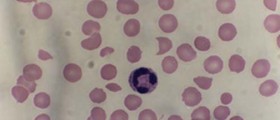
Gilbert’s syndrome, also known as GS, is a hereditary disorder characterized by elevated bilirubin levels. Bilirubin is the yellow breakdown product of normal heme catabolism. Heme is found in blood cells, as a component present in hemoglobin. Bilirubin occurs normally in the body but elevated levels of this substance may indicate certain diseases, usually diseases of the liver and gall bladder. Gilbert’s syndrome affects about 5 percent of world population. It occurs as a mild liver disorder in which the liver fails to process bilirubin, which would normally be excreted in bile and urine. Other names for Gilbert’s syndrome include constitutional hepatic dysfunction, benign unconjugated bilirubinemia and familial nonhemolytic jaundice.
Causes of Gilbert’s syndrome
Gilbert’s syndrome is a hereditary disease, caused by an inherited gene mutation. People are born with this disease, but it is typically discovered by accident, after many years. The disease is usually discovered during a routine blood test, when results show elevated bilirubin levels. The accurate diagnosis is established by ruling out all other liver diseases. There are certain tests that can detect DNA mutations in gene that controls an enzyme that helps break down bilirubin in liver. When this gene is ineffective, bilirubin builds up in blood and causes typical symptoms of the disease. To inherit this disease, a person has to have two abnormal copies of the gene, inherited from both parents. Signs and symptoms of Gilbert’s syndrome
The primary symptom of Gilbert’s syndrome is jaundice that occurs when bilirubin builds up in the bloodstream. Jaundice is the yellowish pigmentation of the skin, whites of the eyes and other mucous membranes. In general, the concentration of bilirubin in the blood must triple before this unusual discoloration becomes visible. People with Gilbert’s syndrome typically suffer from mild abdominal pains, extreme and constant fatigue and overall weakness. Moreover, these individuals may have difficulty maintaining concentration, loss of appetite, unexplained weight loss and other symptoms.
Treatment for Gilbert’s syndrome
Gilbert’s syndrome is absolutely benign condition. It does not require any kind of medical treatment and many medical experts are constantly debating about whether Gilbert’s syndrome should be classified as a disease. There are even some benefits of Gilbert’s disease, as several analyses have confirmed a significantly decreased risk of coronary artery disease in these patients. The only bad thing about Gilbert’s syndrome is that it occasionally causes jaundice in patients but this benign symptom usually goes away very quickly and does not require any kind of treatment.

















Your thoughts on this
Loading...